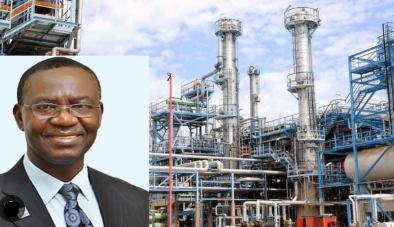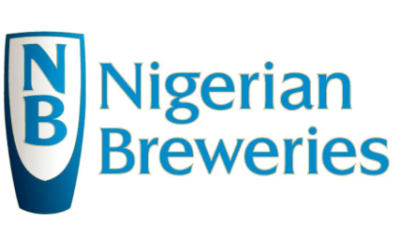Business
Experts predict rise in inflation as investors lose 261 million shares
Published
10 years agoon
By
Olu Emmanuel
By DANLADI BATURE
ECONOMY analysts in the country have forecasted a rising inflation rates of 14% from the present level of 13%. And this rate, according to the analysts this is likely to further worsen the living conditions of the citizens who are reeling under harsh environment characterized by high cost of food items, unemployment and low disposable income.
The expected upward momentum in headline inflation in May reflects increases in both food and core components of inflation. With a 51.8 percent weighting in the inflation basket, the food component has been responsible for a sizeable amount of overall price pressure.
Specifically, increases in the prices of cereals, fruit, meat, fish, dairy, tubers, tomatoes, and vegetables are the main culprits behind the acceleration.
According to The Economic Intelligence Group, Access Bank Plc, the rising inflation will throw real returns for investors further into negative territory, while the Bond yields will likely nudge higher as Investors will want to be compensated for rising prices and inflation.
The review of petrol pump price is likely to have mounted further pressure on May inflation numbers, driven by the transport component and the electricity, gas and other fuels components, which together contribute 23.2 percent to the CPI weighting.
Continued weakness in the Naira, following the announcement of the deregulation of the downstream petroleum sector has also placed significant pressure on the inflation rate. This will have filtered into consumer prices as some firms may have sourced scarce foreign exchange (FX) from the parallel (black) market to import intermediate goods to maintain operations.
ALSO SEE: Inflation to worsen over new exchange rate to consumer prices — Analysts
The CBN is caught between the proverbial rock and hard place as it contemplates further monetary policy tightening to limit the pass-through to inflation but risks stifling demand-led growth. “Our expectation is for interest rates to gradually increase over the rest of this year in a bid to rein in inflation expectations”, analysts at Access Bank said.
“Although Nigeria’s economy contracted in Q1-2016, inflation is likely to remain pressured”, Razia Khan, Chief Economist, Africa, Standard Chartered Bank, said in a recent report.
The Standard Chartered-Premise Consumer Price Tracker (SC-PCPT) for Nigeria surged 2.75 percent m/m in May, following strong monthly gains of 1.07 percent in April and 1.20 percent in March. Prices, as measured by the SC-PCPT have now risen in every month since December 2015. Each of the 12 food sub-categories surveyed experienced m/m inflation in May, with 10 out of the 12 categories showing y/y inflation.
The strongest price gains were observed in the sugar (up 20.36% y/y), vegetables (19.2% y/y) and oils and fats (16.5% y/y) sub-categories. 23 out of the 25 surveyed products that are subject to Nigerian FX controls also saw m/m inflation with earlier restrictions evidently still helping to drive price gains, especially for imported rice and tomato paste.
Faster inflation amid worsening economic weakness may have prompted a policy rethink. Real GDP fell 0.36 percent y/y in Q1-2016, even as official headline inflation accelerated to 13.7 percent y/y in April. With much of the food price pressure attributed to a growing fuel shortage, itself the result of scarce foreign exchange, the authorities took corrective action.
Meanwhile, Investors on the Nigerian Stock Exchange, NSE, lost a whopping 261 million shares last week as the market twin indices closes in the Reds.
At the close of trading, both the All share Index and market capitalization shed 27,098.18 points and N9.307trillion respectively as against their opening levels of 27,475.48 and N9.436trillion.
During the day’s trading 18 losers emerged on the floor and price advancers were only 16.
Nigerian Breweries led the losers’ chart with a loss of N6.65 to close at N130.01 per share.
Dangote Cement lost N4.99 to close at N165 and CAP dipped N1.88 to close at N36.12 per share. Also, Dangote Sugar declined by 47k to close at N6.33 and Guinness shed 46k to close at N99.54 per share.
ALSO SEE: Nigeria’s inflation rate soars to 12.8%
Conversely, Forte Oil recorded the highest gain, appreciating by N9.80 to close at N205.80 per share. Nestle followed with a gain of N2 to close at N757, while Flour Mills chalked up N1.06 to close at N22.36 per share.
UACN appreciated by 85k to close at N19.85, while Ecobank Transnational Incorporated increased by 62k to close at N17.12 per share.
Wapic Insurance emerged the most traded stock, exchanging 60.93 million shares worth N30.47 million. Access Bank followed with an exchange of 34.87 million shares valued at N185.30 million, while United Bank for Africa sold 19.58 million shares worth N82.36 million.
FBN Holdings accounted for 18.79 million shares worth N69.78 million and Transcorp sold a total of 14.61 million shares valued at N20.29 million.
You may like


NMDPRA – Nigerians spend N1.3tn on petrol in June amid soaring energy costs


Nigeria’s power subsidy jumps to N1.94tn; Governors reject electricity act amendment


Dangote refinery’s new fuel distribution scheme targets inflation, Job creation


Ram prices surge by 55%, Traders decry low patronage ahead of Eid-El-Kabir


Expert urges FG to foster sustainable growth in oil, gas sector amidst lingering challenges


Nigerian Breweries Plc. reviews 2024 business operating environment, highlights economic highs and lows
Trending

 Entertainment5 days ago
Entertainment5 days agoSimi addresses resurfaced 2012 tweets amid online backlash

 Health1 week ago
Health1 week agoSCFN, LUTH introduce bone marrow transplants as curative treatment for sickle cell

 Health4 days ago
Health4 days agoDeclassified CIA memo explored concealing mind-control drugs in vaccines

 Football1 week ago
Football1 week agoHarry Kane nets brace as Bayern edge Frankfurt 3–2 to go nine points clear

 Football1 week ago
Football1 week agoLate Flemming header stuns Chelsea as Burnley snatch 1–1 draw at Stamford Bridge

 Crime4 days ago
Crime4 days agoSenior police officers faces retirement after Disu’s appointment as acting IGP

 Education6 days ago
Education6 days agoPeter Obi urges JAMB to address registration challenges ahead of exams

 Crime1 week ago
Crime1 week agoTwo killed, seven injured in early-morning shooting in Richmond’s Shockoe Bottom

